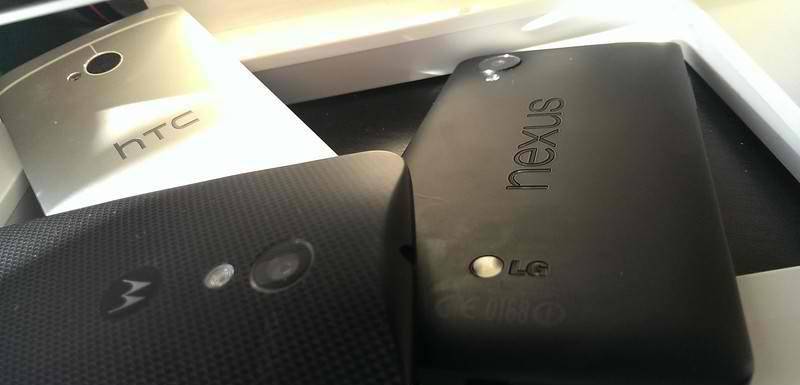
Android is growing, no doubt about that. But just how much and how fast can still sometimes be quite surprising. The latest numbers coming from IDC reveal that Android smartphone shipments comprise almost 85 percent of the world’s output, not an insignificant 33 percent increase from almost 80 percent from the same period last year.
Here are the raw figures coming from IDC. Android smartphone shipments totaled 255.3 million units. iOS, in contrast, shipped only 35.2 million, up from last year’s 31.2 million. That said, the second quarter is noted to be Apple‘s weakest year after year, with figures picking up as new iPhones are announced. Android and iOS combined take up 96.4 percent of the market in Q2 2014. That leaves very little for other players. Windows Phone manages to remain at third but has sunk from 3.4 percent last year to 2.5 percent this year. IDC thinks there might still be some hope for Microsoft‘s mobile platform, with new devices, especially those coming from other OEM’s. Meanwhile, BlackBerry‘s position has become even more precarious, with only 0.5 percent of the market left to it, down from 2.8 percent from the same quarter last year.
IDC makes a few interesting notes about Android’s market supremacy. It attributes part of that success to Samsung, which still managed to make up for 29.3 percent of all Android shipments, down from 40 percent last year. These numbers show Samsung’s unique position in the Android world and somewhat explains the company’s desire to strike a name for itself independent of Google’s platform. That said, it should also be a challenge to other Android-loving OEMs to step up their game and be ready to take Samsung’s place should the Korean manufacturer become wayward. The other note that IDC makes is that 58.6 percent of Android smartphones shipped worldwide cost less than $200, a very lucrative market for the mobile platform that iOS has trouble entering. The Android One initiative unveiled at I/O 2014 last June could very well boost these numbers even higher in the coming quarters.
While we rejoice at Android’s dominance in the smartphone market, we should also pause to think about possible scenarios that the future might hold. With a practical stranglehold on the market, Google is in the position to be the Microsoft/Windows of smartphones. Although Android’s open source nature has checks in place to stop that from happening, Google has also been working to exercise more direct control and lock down some parts that it can, whether through code or through policies. And with 85 percent, expected to grow even more, in its hands, that is a frightening future that no one will want to wake up to.










Yawn. The real growth potential for Android is devices other than phones and tablets. That is the one area where Apple (let alone Microsoft, Blackberry etc.) cannot compete because of hardware costs. You have small companies and Kickstarter projects who realize this, but Google and the major manufacturers are either risk-averse or are simply afraid to launch a product unless A) Apple does it first or B) Google says that it is OK. Companies only started making Android laptops because customers demanded it, and Google still refuses to promote the things. Yes, Google is invested in their ChromeOS, but ChromeOS is too limited for most people, and you can dual boot Android and ChromeOS. And why is Google bringing back their already failed Google TV venture instead of just promoting mini-PCs? There are already a ton of good set top boxes that simply run stock or forked Android, many of them as cheap as $40 and some of the better ones still cost less than Apple TV and Amazon Fire TV and include voice search, remote controls, REAL bluetooth support and some even come with XMBC pre-loaded. And no Android appliances that can be controlled with your smartphone or tablet yet? Why, since doing so should only add a few bucks to the cost of the device?
Maybe someone will start to recognize the true potential of Android at some point.